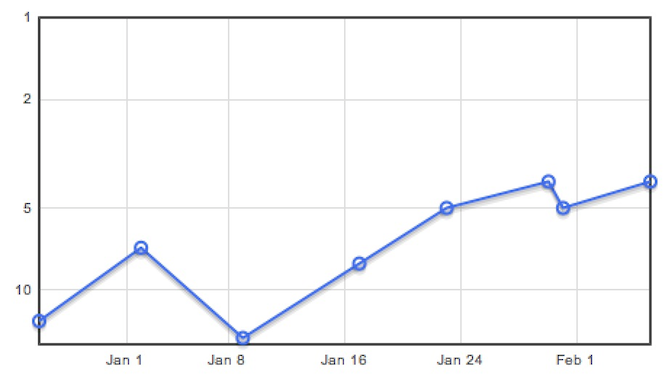
As you will be aware if you have been operating in the blogosphere for any length of time, Search Engine Optimization (SEO) as a concept is open to interpretation (to put it mildly). Just about everyone has an opinion on what you should (or shouldn’t) do in order to best your chances of being ranked in search engines. Quite frankly, it’s enough to compel you to avoid SEO altogether.
While I am keen to not add to the confusion, I cannot help but impart my own opinion in publishing this post. However, I would like to think that my approach is both straightforward and intuitive — it is my hope that having read the following you will feel comfortable with my recommendations in a sense that they simply seem logical to you.
My approach to SEO is based upon one a straightforward concept. In this post I am going to explain that concept, and tomorrow I will reveal the onsite optimization checklist I use when publishing posts in WordPress.
Incidental SEO

When it comes to SEO I have learned that the most important factor is the user experience. While one can try to manipulate search engine algorithms in an attempt to rank more highly, this often results in a poor experience for the visitor. And unless you are creating a junk website that aims to get nothing more than advertising clicks, a culmination of unengaged users is going to have a markedly negative effect on your bottom line. After all, there is little point in attracting hundreds or thousands of new visitors if they bounce straight off your site.
So the first thing to consider is the user experience — is your content interesting and engaging? Is your design eye-catching? Is your site easy to navigate? These three questions should come into consideration before you even think about SEO and take overarching priority over everything else.
As a logical progression, that is where my concept of “Incidental SEO” comes in: the simple principle that SEO tactics should only be employed in a manner that is incidental to the overall quality of your content. It shouldn’t have any sort of negative effect on the user experience.
This makes deciding how to approach SEO relatively straightforward — every time you consider whether to employ the hottest new tactic that you just read in the Warrior Forum, ask yourself if it negatively affects the user experience. Therein lies the answer.
Keep Google Happy
Incidental SEO is essentially what Google wants you to do. In an ideal world their algorithm would reward all of those who follow the principle of incidental SEO and penalize those who attempt to over-optimize or game the system.

My thinking is this: if I am trying to establish a viable long term business, will that happen by me trying to take advantage of short-lived loopholes in Google’s ranking algorithms?
Updates such as Panda and Penguin have clearly demonstrated that Google has “black hat” SEO in its targets, so why put yourself into a perpetual game of cat and mouse? While you can get quick wins from gaming the system, but history has taught me that there is no such thing as long term success in the black hat world.
Instead focus on what Google wants you to do and keep your SEO natural and organic. Focus on the user experience and trust that Google will recognise that your content offers value to the user. All things being well you will be rewarded for your efforts in time.
That’s The Principle — How About the Practice?
My aim with this post reminds me of this timeless saying:
Give a man a fish and you feed him for a day; show him how to catch fish and you feed him for a lifetime.
I don’t want to tell you how you should optimize your posts for SEO — ultimately I think people should make that decision for themselves. There is no such thing as “perfect” SEO — the optimization techniques that give you the best chance of ranking in any particular scenario could also result in a less-than-positive user experience.
So remember to always prioritize the user experience above everything else. SEO can be extremely important, but it should never be more important than the ease with which a user can digest and enjoy your content. Ultimately, everything flows from there.
Tomorrow I am going to show you how I interpret the principle of incidental SEO by revealing a detailed version of the checklist I follow when optimizing content for the search engines. Stay tuned!
Photo Credit: ucumari

Jawad Khan | WritingMyDestiny
Absolutely agree with your post Tom.
I am a strong believer of writing for humans rather than Google. Specially now that Google is tightening its algorithms, writers who write naturally and focus on delivering value will definitely benefit in the long run.
Peter
Great post Tom.
You can win some battles against Google, but you can’t win the war. If you wanted to.
Original, viral-friendly content, UX and design are the most important things to have. It’s like with a fat loss – you can’t get a healthy, lean body with cheating – you have to work for it.